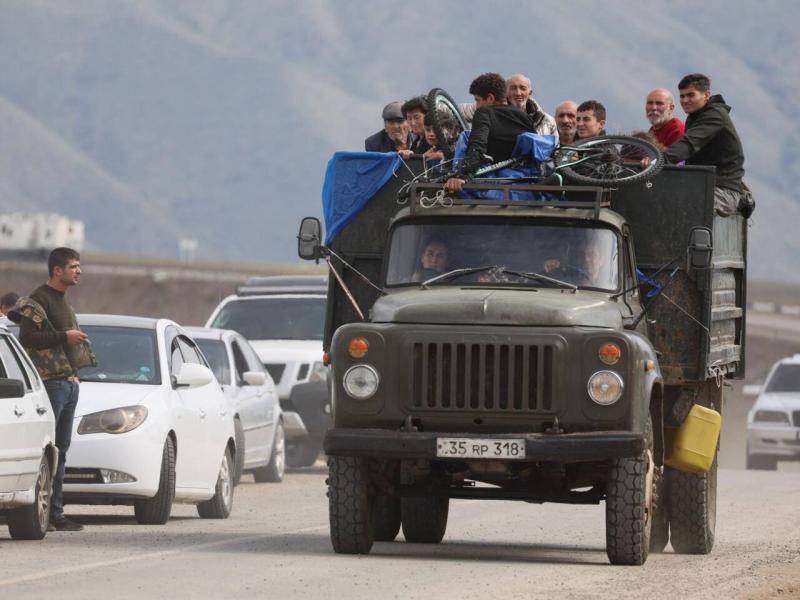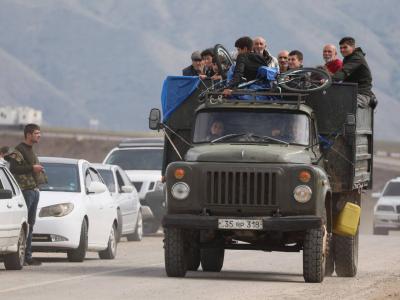After the flight of tens of thousands of Armenians from their homes in Nagorno-Karabakh, several international experts have stated that the mass exodus meets the criteria for a war crime characterized by "forcible displacement or transfer," or even a crime against humanity. The Nagorno-Karabakh region is internationally recognized as part of Azerbaijan but is predominantly inhabited by Christian Armenians who established a self-proclaimed republic named "Artsakh" three decades ago following a bloody ethnic conflict during the collapse of the Soviet Union. According to the Russian media agency, the Armenian government reported that by Friday, more than 90,000 of the estimated 120,000 residents had fled to Armenia.
The displacement has revived the specter of the war that occurred between 1988 and 1994 between the Armenians and their Azerbaijani neighbors, amidst a long history of ethnic bloodshed and displacement that has left deep scars on the collective memory of the region, sparking profound fears and mutual suspicions. The foreign policy advisor to Azerbaijani President Ilham Aliyev told reporters in Brussels on Tuesday, "We sometimes find in international media... certain metaphorical descriptions implying ethnic cleansing or that Azerbaijan is committing genocide." He added, "There is no confirmed evidence on the ground of any kind of violence against local civilians."
Regardless of the historical context and the lack of independent reports on events within the isolated region, a number of international legal experts believe that the mass flight aligns with the legal definition of a war crime. The foundational documents of the International Criminal Court stipulate that in reference to forcible transfer or deportation, the term "forcibly" is not limited to physical force but may include threats of force or coercion, such as that resulting from fear of violence, duress, coercion, detention, psychological oppression, or abuse of power against individuals or groups, or exploitation of a coercive environment.




